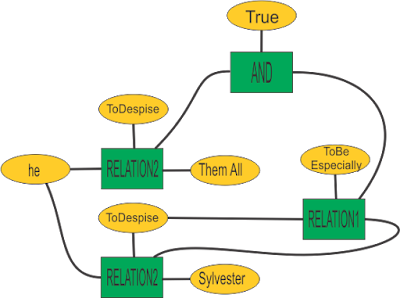Not Particularly
Do you like dancing?
Not particularly.
What is “not particularly” doing?
It is not saying he particularly dislikes dancing.
If we create the structure of
He does not particularly like
dancing
what do we get?
The adverb is putting out a logical. With a false on its
input, it can’t put out a false on its output – its inverse is “ToBeGenerally”.
You could argue a False into a ToBeParticularly should put
out an unknown – 0.5 – midway between true and false. An argument for another
day. Right now, we need a structure to build.
Does this mean he doesn’t like dancing?
No, it means he does
not prefer it to other things he likes.
Or it could just mean he is being polite, and actually hates
dancing.
So, what about “especially”?
He despises them all, especially
Sylvester.
This doesn’t change the truth value of the despisement of
Sylvester, but it does add an extra layer, so the people he prefers to despise
can rise to the top.
As another example, “infinitely” would provide the logical
to “preferable” in “infinitely preferable”.



Comments
Post a Comment